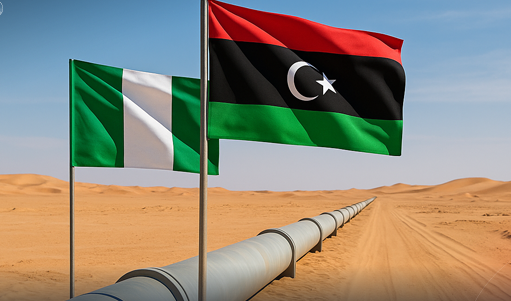Libya and Nigeria are in discussions regarding a gas pipeline project aimed at supplying Europe with natural gas. The Minister of Oil in the Government of Unity, Khalifa Abdul Sadiq, recently held a high-level meeting with Nigeria’s Minister of State for Petroleum Resources, Heineken Lokpobiri. This collaboration seeks to enhance energy security and diversify supply routes to Europe.
Strengthening Energy Cooperation
The proposed gas pipeline project represents a significant step toward strengthening energy cooperation between Libya and Nigeria. Both countries possess vast natural gas reserves, making them strategic partners in the energy sector. By collaborating on this project, they aim to leverage their resources to meet European energy demands.
During the meeting, both ministers discussed the technical and logistical aspects of the pipeline. They emphasized the importance of ensuring that the project aligns with international standards. This alignment will help attract investment and facilitate the smooth execution of the pipeline.
Heineken Lokpobiri expressed optimism about the potential benefits of the project. He noted that the pipeline could provide a stable supply of natural gas to Europe, reducing dependence on other sources. Additionally, this initiative could create job opportunities and stimulate economic growth in both countries.
Addressing Challenges and Opportunities
While the gas pipeline project presents numerous opportunities, it also faces challenges that need to be addressed. Infrastructure development is crucial for the successful implementation of the pipeline. Both countries must invest in the necessary facilities to support the transportation of gas.
Moreover, ensuring political stability in Libya is essential for the project’s success. Continued collaboration between the two nations will require a stable environment that encourages investment and development. The ministers acknowledged these challenges and committed to working together to overcome them.
Furthermore, the project aligns with global efforts to transition to cleaner energy sources. By supplying natural gas to Europe, Libya and Nigeria can contribute to reducing carbon emissions. This aligns with international climate goals while also boosting their economies.
In conclusion, the discussions between Libya and Nigeria regarding the gas pipeline project to Europe highlight the potential for enhanced energy cooperation. With their rich natural gas reserves, both countries are well-positioned to meet European energy needs. By addressing challenges and fostering collaboration, they can pave the way for a successful project that benefits both nations and contributes to global energy security. As the talks progress, the hope is for a transformative partnership that strengthens economic ties and promotes sustainable development.




